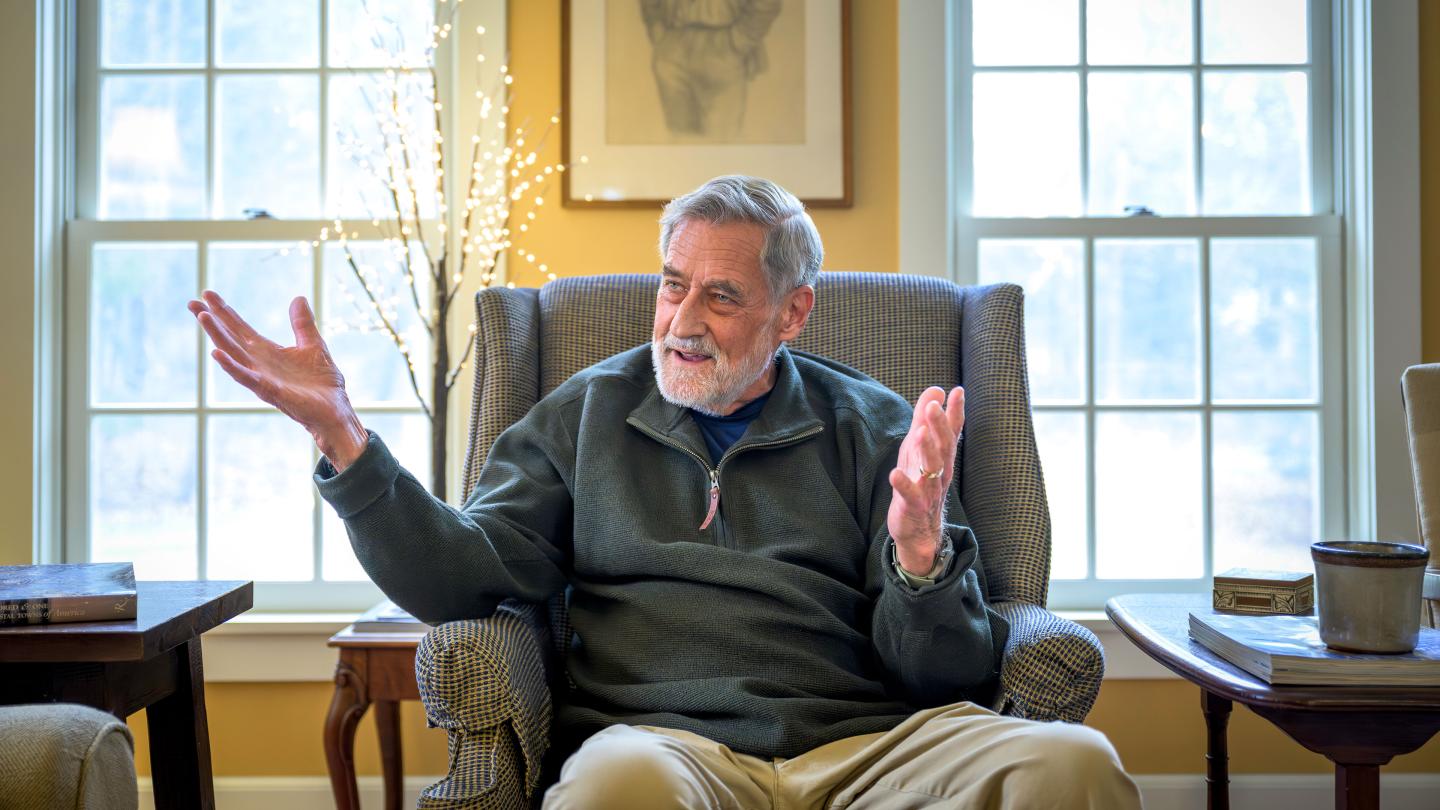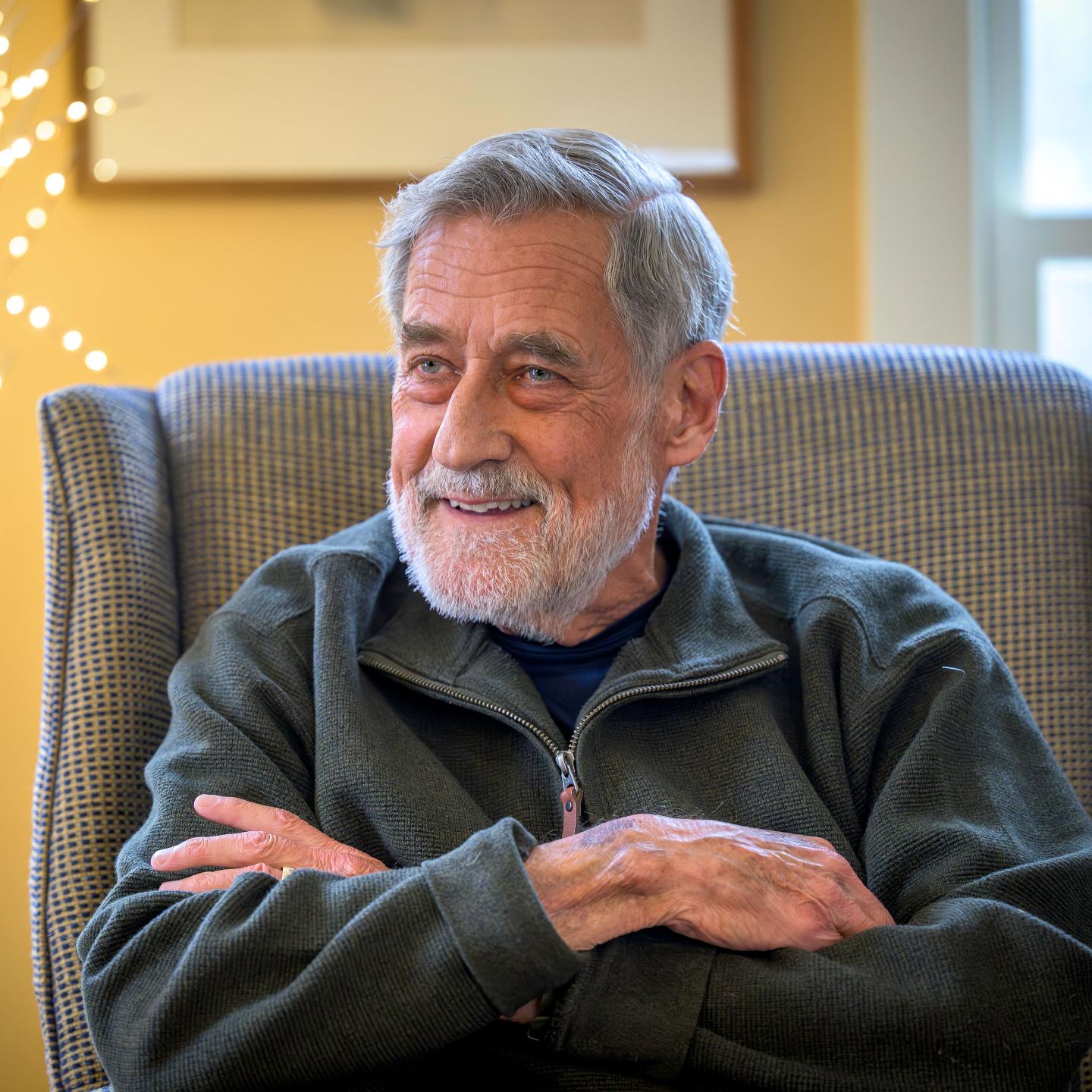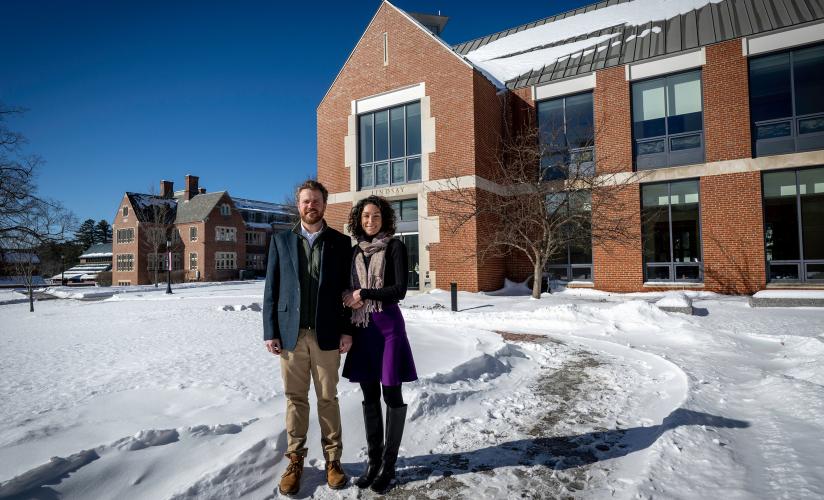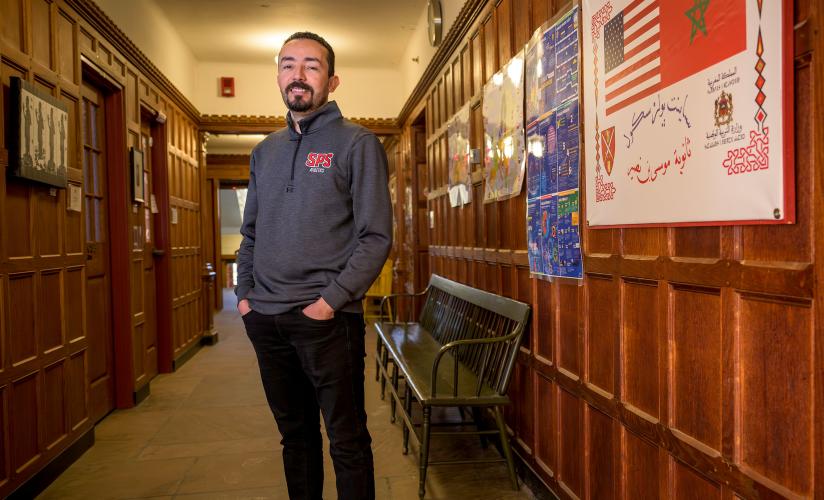

Maxwell King ’62 wants to be remembered as a good listener.
BY KATE DUNLOP
Note: Soon after Maxwell King ’62 was profiled for the winter issue of Alumni Horae, he was selected as the 2024 Alumni Association Award recipient by the Alumni Association’s Presidents Council, which includes the president and past presidents, as well as the executive director and past executive directors. Established in 1997 by the Executive Council to recognize and honor those alumni who have been a credit to the School and its teachings, the Alumni Association Award is the highest distinction that can be bestowed on an alumna or alumnus by the association. Recipients are those living alumni who, through outstanding service, have improved the quality of life in a community on a local, national or global level. Watch King’s acceptance remarks here.
The world at large knows Maxwell King ’62 for his impressive titles and accomplishments. He has been a reporter and a top editor (of The Philadelphia Inquirer); he’s run “a couple of philanthropies” (The Heinz Endowments and The Pittsburgh Foundation); and he’s written books (biographies that so far include the New York Times best-selling “The Good Neighbor: The Life and Work of Fred Rogers” and “American Workman: The Life and Art of John Kane,” as well as a volume of poetry). There’s more, of course.
More than anything, however, he’d like to be known as having been thoughtful and kind, and a good listener. That’s because King knows in his soul that listening leads to understanding and is the foundation of service.
The Ohio native still marvels at how his parents listened when he shared his plan to drop out of Harvard after his first year because he wanted adventure, not the life of a lawyer.
“When I quit Harvard, I thought I was quitting for good,” King says. “I thought, ‘I’m not going to go to college and be a lawyer. I’m going to go into the Merchant Marine and be a writer.’ That was the idea.”
He finagled a seaman’s card and signed on to the ore boats of the Great Lakes and then, after his father had to bail him out after one too many fights, to cargo ships out of New York that carried him to Europe, Africa and on to Asia.
“In some ways it was exotic, but as a lifestyle, its allure diminished, mostly because I wasn’t good at the fights,” King says. “After a year, I went back to Harvard and majored in English. But what a great example of being willing to listen to, and understand, another person — my parents didn’t leap to the judgment that I was messed up. I probably was, and they weren’t happy about what was going on, but their main signal to me was, ‘We trust you. Get through it. We think you’ll be okay.’ They listened to me.”
King credits St. Paul’s School and his time around the Harkness table as vital in shaping his own ability to listen to others.

A key aspect of St. Paul’s is the commitment not just to the community of the School but to subsequent communities. What got under my skin at St. Paul’s, and I think thrives today, is a commitment to something larger than individual success. That individual is terribly important, but only in service to community.”
“Every class we had involved these really good discussions, and no matter how little or much you participated, they changed your understanding of what you were reading in a significant way,” King says. “That listening aspect serves one well in journalism. When you have the opportunity to dig in and ask questions and understand, you forget about yourself. That’s a key to good journalism. And it’s important to know that journalists consider their work to be in service to the community.”
From the newsroom to the boardroom, that skillset of listening to people and translating what he hears to the business at hand has served King well. When he left the Inquirer in 1999 after 25 years to take the helm of the Heinz Endowments in Pittsburgh, one of the nation’s largest philanthropic organizations, he immersed himself in getting to know his new city, understanding its issues, and telling its stories to those who could help make the difference the organization hoped to achieve by placing grants in the right hands. King spent nine years advocating for the Endowment’s work on environmental issues, fostering greater diversity in the Pittsburgh community, and promoting literacy, art, civic design, early childhood education and academic reform.
In 2019, soon after his biography of Fred Rogers was published and after serving five years as the president and CEO of The Pittsburgh Foundation, for which he raised $270 million, he was named Pittsburgher of the Year. Now, King is starting a three-year term of service on the board of The Heinz Endowments. Careful to keep in mind he’s no longer running the place, he’s hopeful that he can help the Endowments refocus on early childhood education and rededicate itself to revitalizing downtown through the arts, as it did in the 1990s.
As King reengages in the mission of a community foundation, his thoughts harken back to what he learned listening to his peers and teachers in Millville, and what he has put into action ever since.
“A key aspect of St. Paul’s is the commitment not just to the community of the School but to subsequent communities,” says King. “What got under my skin at St. Paul’s, and I think thrives today, is a commitment to something larger than individual success. That individual is terribly important, but only in service to community.”



